
Hong Kong special needs children turn to NGOs for job training in face of scarce government provision
With no clear educational guidelines for special-needs children in Hong Kong, LoveXpress and the Rock Foundation fill the gap by designing courses to put them on a suitable career path
Armed with syringes, several teenagers are injecting coconut milk into bowls of jelly, meticulously recreating flower petals – making 3D jelly art is much harder than it looks.
Hong Kong students with special needs not properly supported by government education system
For one thing, the syringe can clog if the job is done too slowly because the sweetened milk coagulates at room temperature. The art created by the workshop’s participants is jaw-dropping, though, with one jelly containing a whole bouquet of roses and chrysanthemums that look almost real.
Clearly, this is no ordinary workshop. All the participants, here with their parents, are teenagers with various symptoms of autism spectrum disorder. The activity is designed to channel their special abilities, such as a heightened sensitivity to colours and patterns, and a tendency to excel at repetitive tasks.
More importantly, it is a much needed opportunity for youngsters with special needs to receive training that may help them on their career path.
“Their uniqueness is something we don’t have. The key is to help them discover and develop their strengths,” says Noel Lam Yin-Ng, co-founder of LoveXpress, the NGO that organises the workshop.
Jellies made at the previous workshop were sold and, during a prize presentation break, Kitty Poon, another co-founder, hands each teenager a cheque. It’s a small amount, but the significance is huge.
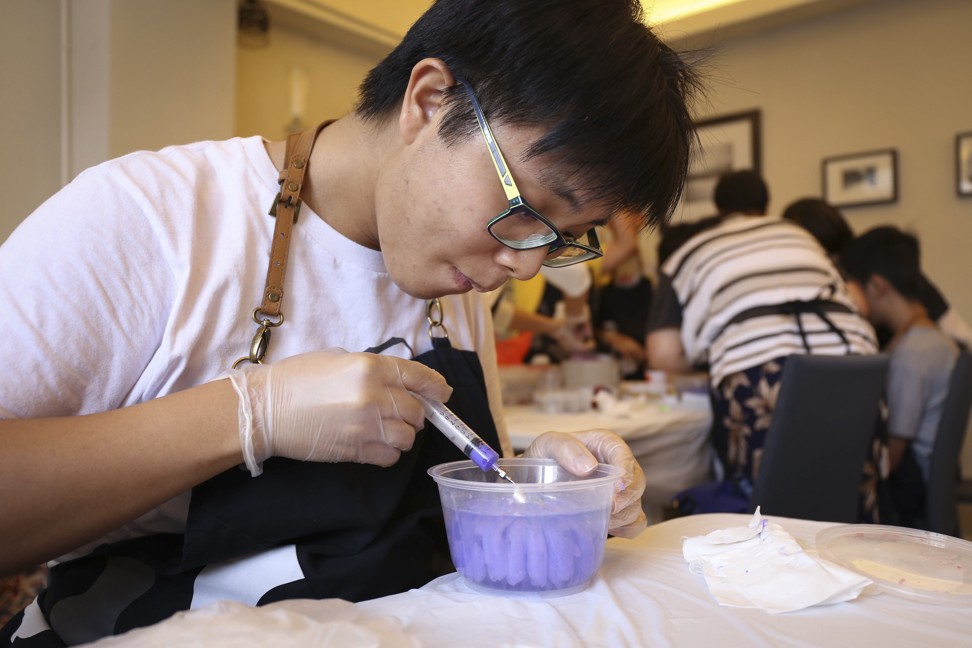
“For many of the parents, it’s the first time their children have earned money, and it gives them hope,” Poon says.
Education is not about showing other schools how many of your graduates have gone to Cambridge. It’s to help your students enhance themselves and face challenges
One of the participants is Justin Sum Bo-hei, who turns 20 this year. Sum attended a mainstream primary school. What he lacked in cognitive skills the diligent pupil compensated for with hard work. Private tutors were hired to guide him through his schoolwork. But when he entered secondary school, the disparity between him and his peers, in terms of both academic ability and social skills, widened and he fell victim to bullying.
Luckily, Sum was able to transfer to Fortress Hill Methodist Secondary School (FHMSS), one of only two government-funded schools in Hong Kong dedicated to helping special-needs students find their career path. FHMSS has places for just 300 students.
“Teachers who choose to work there are usually passionate about helping children with special needs and have more experience as well,” says Sum’s father, Patrick Sum Siu-yuk, adding that Justin was much happier after moving to FHMSS.
Grounds for optimism: Hong Kong’s special needs teenagers gain new confidence as baristas
The school does not focus exclusively on academic subjects because that would not be in a special-needs student’s best interests in the long term.
“Education is not about showing other schools how many of your graduates have gone to Cambridge. It’s to help your students enhance themselves and face challenges in life as well as in society,” says Tiffany Yao Shui-chun, founding principal of the Fortress Hill school, who negotiated with the Education Bureau so that students would not have to sit the Hong Kong Diploma of Secondary Education.
“What’s the point when you know very well they are not up to that level? Can you really assess them if they score zero marks in every subject?” Yao says.
Instead, the school helps pupils develop vocational skills through courses such as baking, beauty and graphic design, and forms partnerships with companies so that upper secondary students can be assigned internships.
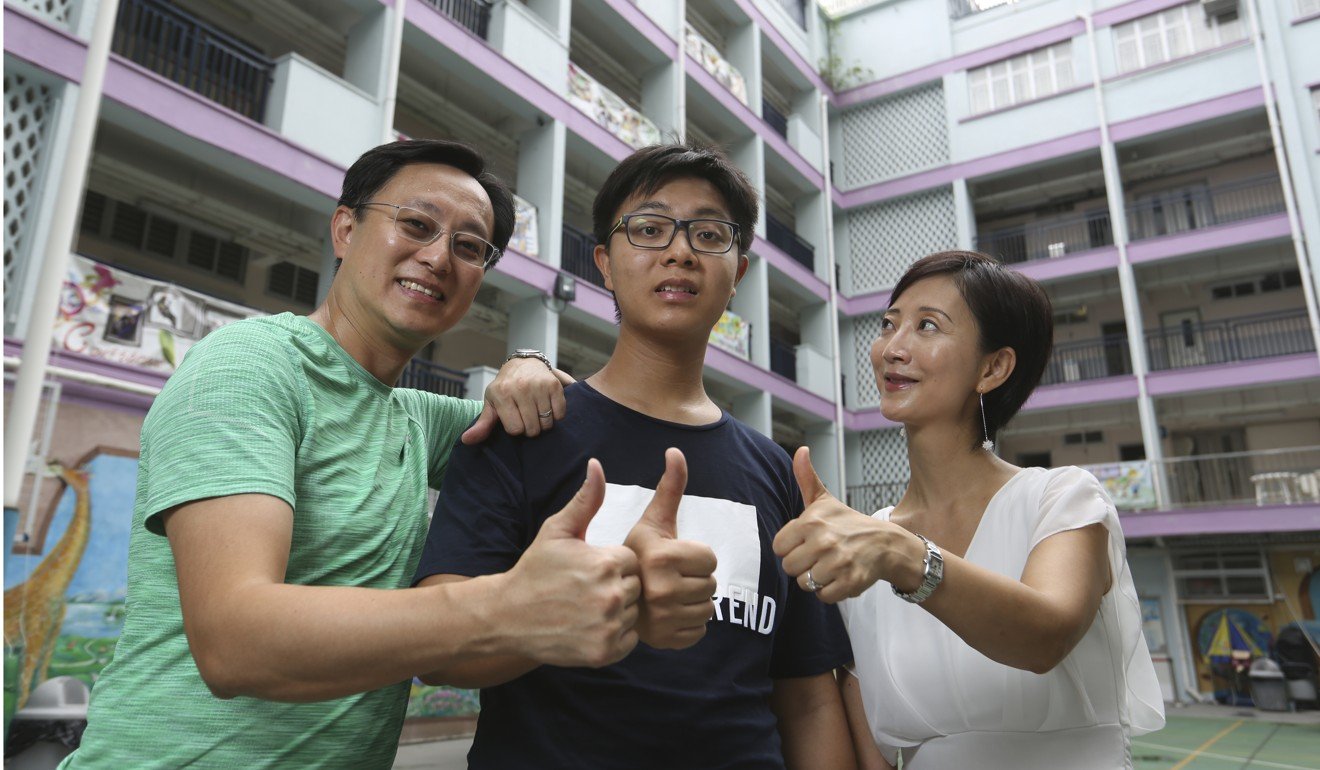
Sum joined cooking classes held by the school on Saturdays, then got a summer job last year at Cheers Cafe in Kowloon Tong, which is run by the Education Bureau. Although his stint at the cafe was brief, it helped him discover his preferred career path.
After graduating from secondary school this June, he enrolled at the Caritas Lok Mo Integrated Vocational Training Centre, where he studies Western culinary skills and catering services. If he performs well, he may even get a job offer before completing the programme.
Ineffective integration is no help to special needs students in Hong Kong
Professor Kenneth Sin Kuen-fung, director of the Centre for Special Educational Needs and Inclusive Education at the Education University, says Hong Kong needs a comprehensive strategy to cater to special-needs children. As it currently lacks one, the city lags far behind neighbouring places such as Taiwan and Macau.
Why don’t they deserve to dream? At the very least, they should have a say in their lives
“Taiwan has revised its Special Education Needs bill for a second time. It is not perfect, but at least it offers a guide on how to care for those with special needs from the cradle to the grave. It has also introduced a new rule where employees with disabilities have to comprise at least 3 per cent of a company’s staff [if it employs more than 34 people],” says Sin.
He adds that Macau is also revising its special-education-needs bill, which was enacted in the 1990s. “But in Hong Kong, we have no such guidelines, and the government is not even encouraging the drafting of any.”
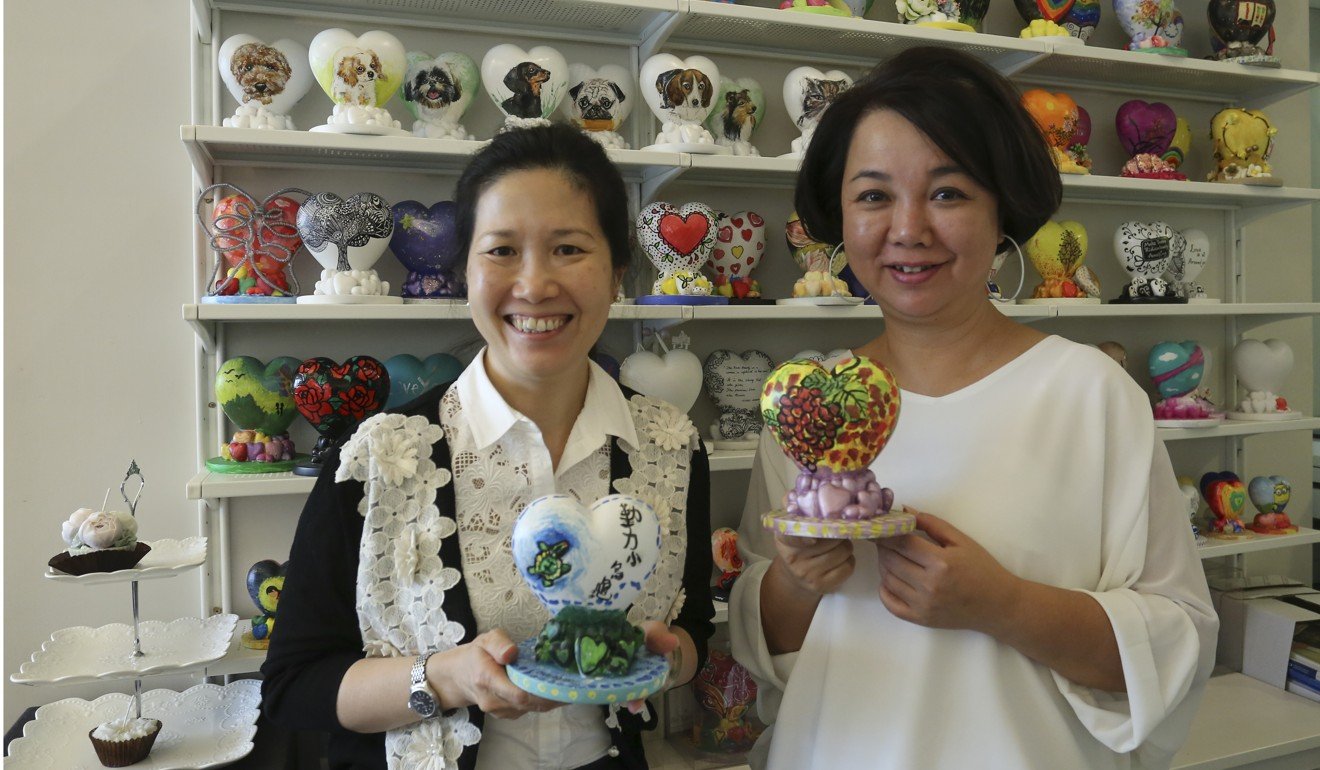
As a result, NGOs such as LoveXpress are filling the gap in terms of career development for special needs students graduating from secondary schools. The jelly art workshops it has hosted are part of its pilot career-planning programme for autistic students, which also includes visits to companies and organising internships.
In August, Poon took the participants to Goldman Sachs’ office for mock interviews. “The students get a taste of the commercial environment, and company employees learn more about how to work with people on the autistic spectrum. For example, just because they do not look you in the eye, it doesn’t mean they do not respect you,” says Poon, who believes learning needs to work both ways to make society more inclusive.
Help students with special needs succeed in Hong Kong universities
However, it is not just a matter of securing a job. “With such a distorted education system, where students’ academic achievements determine the rest of their lives, can you imagine the amount of pressure autistic children and their parents are under?” asks Lam.
The NGO founders have spoken to some parents who have said their biggest wish is that their children die before they do, because they do not see any hope for them. So rather than just finding employment for the students, Lam says, it is more important to reassure them, their family and society of their value.
Another NGO with a similar mission is the Rock Foundation, based in Wan Chai, which offers a post-secondary programme for special needs students.

Sally Ho Gak-ki, a shy young woman in her early 20s with mild intellectual disability, was introduced to the organisation by a social worker from her secondary school. Since joining a year ago, she has sung in choirs, performed in concerts and dramas, and took part in art classes. All of the activities are designed by the foundation to help cultivate young people’s artistic talents.
Graduate of special-needs school rejects ‘drug users and gangsters’ accusation by Hong Kong principal
Although Ho cannot articulate her thoughts very well, she gives a heartfelt answer when asked about the difference between the education she had previously received at a vocational training centre and then at the Rock Foundation’s centre.
“At the training centre, I was doing things I had to do, but here I am doing things I actually like,” she says. She was given an opportunity to sell accessories she had made at craft markets and now works part-time as a clerk in the NGO’s office. Her aspiration, however, is to become a teacher’s assistant in school art classes, something she is now doing on a voluntary basis, putting her a step closer towards her dream.
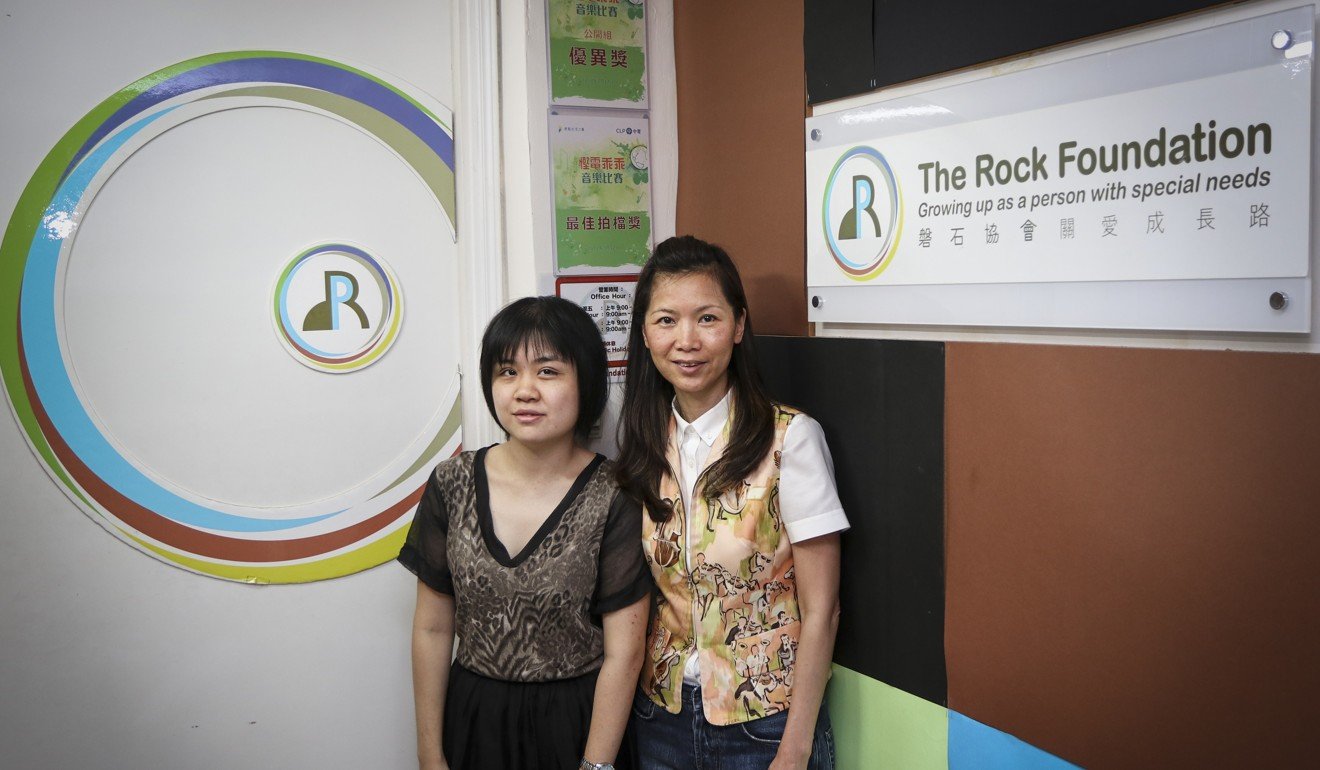
Helping special-needs teenagers realise their dreams is the goal of the Rock Foundation. But before that can happen, students first go through a lengthy process to discover their interests and aspirations. There is no standard formula for how this can be done, but teachers work closely with the students to guide them through the journey.
Tuen Mun principal hits out at plan to build special needs school nearby
“I used to be a youngster as well, and I believe all young people should have autonomy. Special-needs students are often told how limited their abilities are and how they should live, which makes them feel worthless,” says foundation founder and director Hazel Delfina Chang.
One of the students whom she has personally coached is an autistic youngster named Sunny, who had undergone hotel housekeeping training at special schools before joining the programme. “He was trained to a very high level. So technically, he can be a hotel room attendant at a luxury hotel, which is considered quite a decent career path for special-needs youngsters,” Chang says.
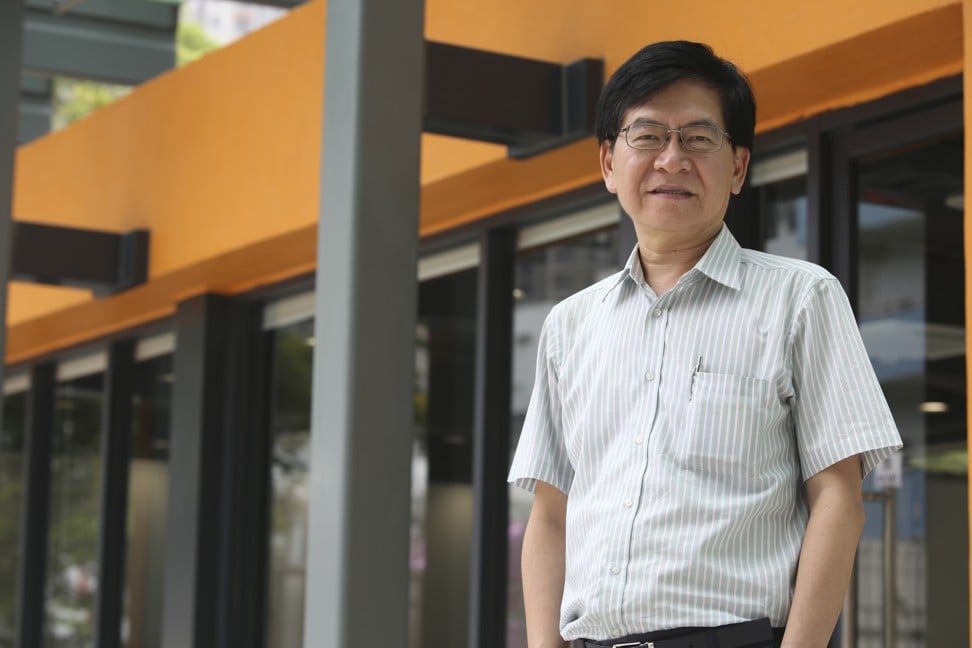
But Sunny disliked his work and stopped attending classes or even venturing out of his home. Now though, he is working as a teacher’s assistant at a school in Mui Wo, realising his dream of working with children and teaching arts.
“Why don’t they deserve to dream?” Chang asks. “At the very least, they should have a say in their lives.”

